Search Results for: Bees
Skip to resultsCan’t find what you’re looking for? Visit our FAQ page.
1,564 results for: Bees
-
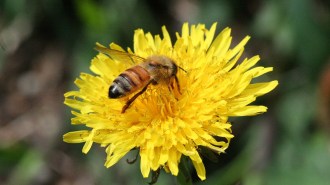 Animals
AnimalsPower lines may mess with honeybees’ behavior and ability to learn
Under power lines, honeybees might suffer neurological effects from exposure to electromagnetic fields.
-
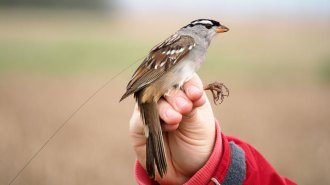 Agriculture
AgricultureBirds fed a common pesticide lost weight rapidly and had migration delays
Scientists have previously implicated neonicotinoid pesticides in declining bee populations. Now a study suggests that songbirds are affected, too.
By Maanvi Singh -
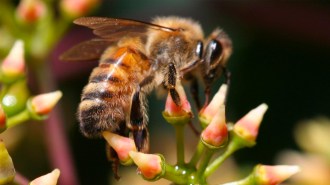 Neuroscience
NeuroscienceHoneybee brain upgrades may help the insects find food
Changes in honeybee neurons may help the insects decode their fellow foragers’ waggle dances.
-
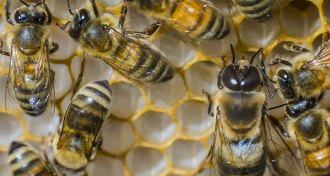 Animals
AnimalsU.S. honeybees had the worst winter die-off in more than a decade
Colonies suffered from parasitic, disease-spreading Varroa mites. Floods and fire didn’t help.
By Susan Milius -
 Animals
AnimalsBad moods could be contagious among ravens
Ravens may pick up and share their compatriots’ negativity, a study on the social intelligence of these animals suggests.
-
 Artificial Intelligence
Artificial IntelligenceA new AI acquired humanlike ‘number sense’ on its own
A new artificial intelligence seems to share our intuitive ability to estimate numbers at a glance.
-
 Science & Society
Science & SocietyHow we reported on the challenges of using ancestry tests to solve crimes
Here’s how we found out what happened when an arrest was made in the Golden State Killer case that was tied to genetic testing.
-
 Science & Society
Science & SocietyIntroducing the Transparency Project
The Transparency Project aims to be more open and accountable to readers by explaining key coverage decisions and showing how science journalism happens.
By Nancy Shute -
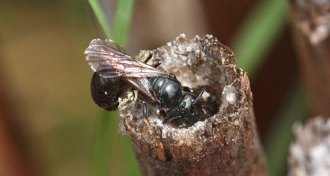 Animals
AnimalsThe first male bees spotted babysitting are mostly stepdads
Some male bees guard young that are likely not their own while mom looks for pollen, a study finds.
By Susan Milius -
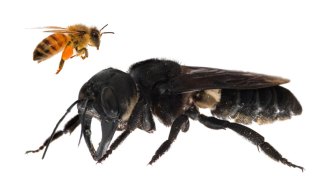 Animals
AnimalsThe world’s largest bee has been rediscovered after 38 years
Researchers rediscovered the world’s largest bee living in the forests of an island of Indonesia.
By Jeremy Rehm -

March 16, 2019
In the March 16 SN: Disappearing Bering Sea ice, nanohealers, the world's largest bee, pollen’s beautiful physics, a tiny T. rex relative, testing Ebola drugs in Congo and more.
-
 Animals
AnimalsThis honeybee parasite may be more of a fat stealer than a bloodsucker
Inventing decoy bee larvae prompts a back-to-basics rethink of a mite ominously named Varroa destructor.
By Susan Milius